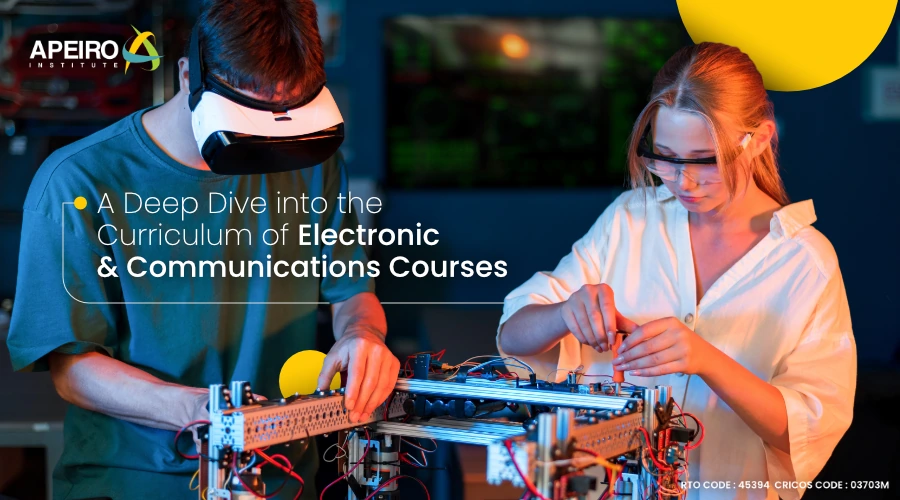The automotive industry is undergoing significant changes, driven by advances in technology, changing consumer preferences, and increasing environmental awareness. To keep pace with these changes, automotive technology courses are evolving and adapting to provide students with the skills and knowledge needed to succeed in the jobs of the future.
One of the most significant trends in the automotive industry is the electrification of vehicles. Electric and hybrid vehicles are becoming increasingly popular, and automakers are investing heavily in developing EV technology. As a result, automotive technology courses are incorporating more training on EV systems, including battery technology, charging infrastructure, and electric drivetrains. Students who complete these courses will be well-positioned to work on the cutting edge of the automotive industry and help develop the next generation of electric vehicles.
Another major trend in the automotive industry is the development of autonomous vehicles. Autonomous driving technology is rapidly advancing, and self-driving cars are expected to become more common in the coming years. As a result, automotive technology courses include more training on the technology and systems involved in autonomous driving, such as sensors, data processing, and safety features. Students who complete these courses will be prepared to work on developing and maintaining autonomous vehicles and their supporting infrastructure.
Connected cars are also becoming increasingly common, with vehicles using technology to communicate with other vehicles, infrastructure, and the internet. Automotive technology courses are incorporating more training on the software and hardware involved in these systems, helping students gain the skills and knowledge needed to work on developing and maintaining these advanced technologies.
Sustainability is another important trend in the automotive industry, with automakers focusing on developing eco-friendly technologies to reduce emissions and promote sustainability. Automotive technology courses include more training on these technologies, such as fuel-efficient engines, lightweight materials, and recyclable components. Students who complete these courses will be well-positioned to work on developing and implementing these sustainable technologies.
Finally, digital technology is increasingly being incorporated into automotive technology courses. Virtual simulations and augmented reality training can provide students with practical experience and help them develop their skills in a safe and controlled environment. These technologies can also help students better understand complex systems and technologies, leading to a more comprehensive understanding of automotive technology.
In conclusion, the future of automotive technology courses is exciting and rapidly evolving. With a focus on preparing students for the jobs of the future, automotive technology courses are incorporating new technologies and training on the latest trends in the automotive industry. As a result, students who complete these courses will be well-prepared to work on the cutting edge of the automotive industry and help shape the future of transportation.
Why Study Automotive Technology Courses in Australia?
The future of automotive technology courses in Australia is likely to be shaped by a number of factors, including technological advancements, changes in the job market, and government policies. Here are some trends and predictions that may impact the future of automotive technology courses in Australia:
- Job market: The job market for automotive technicians and engineers is expected to remain strong in Australia, with high demand for skilled workers. However, there may be a shift in the types of jobs available, with a greater focus on electric and autonomous vehicle technology.
- Government policies: Government policies can also impact the future of automotive technology courses in Australia. For example, policies that promote electric vehicle adoption or emissions reductions could lead to increased funding and resources for courses related to those topics.
- Industry collaborations: The automotive industry in Australia is likely to collaborate more closely with educational institutions in the future. This could lead to more industry-focused courses that provide students with hands-on experience and exposure to real-world challenges and opportunities.
- International trends: Automotive technology is a global industry, and Australia is likely to be influenced by international trends and developments. For example, courses related to electric and autonomous vehicles are likely to become more popular as these technologies become more prevalent around the world.
- Interdisciplinary approach: Automotive technology is a complex field that involves many different areas of expertise, including engineering, computer science, and environmental science. In the future, there may be a greater emphasis on interdisciplinary courses that provide students with a broad range of skills and knowledge.
- Soft skills: In addition to technical skills, employers are increasingly looking for candidates with strong soft skills, such as communication, teamwork, and problem-solving. Future automotive technology courses may place a greater emphasis on developing these skills alongside technical skills.
- Flexible learning: Finally, the future of automotive technology courses in Australia is likely to be shaped by changing attitudes towards learning and education. Students are increasingly looking for flexible and accessible learning options, such as online courses and part-time programs. Educational institutions may need to adapt to these changing preferences in order to remain competitive and meet the needs of students.
Overall, the future of automotive technology courses in Australia is likely to be shaped by a combination of technological advancements, changes in the job market, and government policies. Students who are interested in pursuing a career in automotive technology should stay informed about these trends and consider courses that align with their interests and career goals.
One of the top universities in Perth, Australia, Apeiro Institute is renowned for offering a variety of practical degrees. With the aid of qualified instructors and educational authorities, the institute has solidified its position as a provider of nationally recognised training to students from both domestic and foreign countries.The automotive technology courses at Apeiro Institute are highly specialized and help students rise to the top of their field. Visit https://www.apeiro.edu.au/ to know more.






